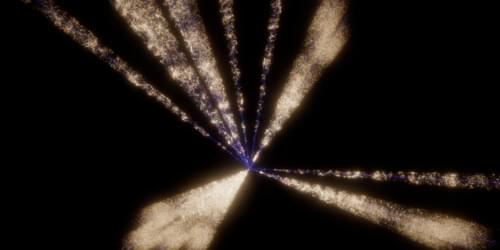This week, a team of over 1,000 scientists from around the globe released to the public the first batch of data collected with the Dark Energy Spectroscopy Instrument (DESI), a telescope that cosmologists hope will help answer open questions on the nature of dark energy and the evolution of the Universe [1– 3]. “The telescope works better than we ever imagined,” says Michael Levi, a cosmologist at Lawrence Berkeley National Laboratory (LBNL), California, and the director of the DESI Collaboration. “We are ready to have everybody look at this [initial] data release and see what they can do with it.”
The goal of the five-year-long DESI survey is to map the Universe deeper in time and higher in detail than any previous telescope (see Feature: Entering a New Era of Dark Energy Cosmology). “We want to go way beyond what was done before and really be able to see the evolution of dark energy over the history of the Universe,” says Nathalie Palanque-Delabrouille, a cosmologist at LBNL and one of the spokespeople for the DESI Collaboration. To see that evolution, the survey plans to pinpoint the locations of over 40 million galaxies. The key to filling in the cosmic map is the use of robotic technology that automatically alters the placements of light-collecting fibers so that they can retrieve spectroscopic information from targeted bright spots in the sky. The spectral measurements provide information on what an object is and how fast it is moving away from us, which is needed to estimate its distance.
The robotic technology used to target objects had never been tried before, so it was not always clear that DESI would perform as expected, Levi says. But he and other team members have been pleasantly surprised by how smoothly the machine has operated. “DESI has preserved every photon that the Universe gave us,” he says.
